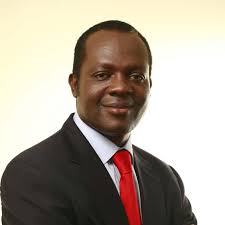Dr.Edris N.Omondi (Advocate)
Mathematics, often perceived as a daunting and abstract subject, has long been relegated to the realm of the “geniuses” in the classroom.
For many students, it is a source of frustration, fear, and anxiety, often due to ineffective teaching methods or the prevailing belief that it is an inherently difficult subject.
However, as one’s perspective shifts and the approach to learning mathematics changes, it can become not only an enjoyable pursuit but also a powerful tool for developing critical thinking skills.
Personal Experience:
My personal experience with mathematics began in high school, where I was taught by a teacher who, despite his expertise in the subject, struggled with a stammer.
His difficulty in conveying concepts clearly and at an engaging pace made math seem boring and inaccessible.
Gradually, I distanced myself from the subject, skipping classes and neglecting assignments.
Found myself absorbed in novels during the lessons.
Indeed, my grades plummeted, and I came to view math as something reserved for the “brainiacs,” further solidifying my belief that it was an insurmountable obstacle.
The collective mindset around me – that math was too difficult – compounded this feeling, creating a culture where math was not something I enjoyed but rather something to be feared and avoided.
The shift:
However, a shift occurred when I embarked on my academic journey at a foreign university in India.
Due to my low grades in high school, I was required to take a bridging course, and once again, mathematics was a mandatory subject.
This time, however, I found myself in a class filled with Indian students who had an entirely different attitude towards math.
Before the teacher could even finish a problem, every hand in the room was raised, eager to answer.
I was astonished.
There was an energy in the room, a sense of excitement and competition that I had never associated with math before.
Determined to understand the methods they were using; I befriended some of my classmates and learned their techniques.
Slowly but surely, my brain began to engage with numbers in a way I had never experienced before.
Math was no longer a chore; it became a puzzle, a game I wanted to solve.
Reflecting on my experience, I realized that there was nothing inherently wrong with me or my ability to understand math or the several canes that i had to endure to get the concepts.
The problem lay in the approach to the subject, both in how it was taught to me and in the prevailing cultural belief that it was an inherently difficult discipline.
The pervasive attitude that math was reserved for the elite created a barrier that discouraged me from even attempting to engage with the subject.
Once I discovered a new, more accessible way to approach mathematics, everything changed.
Exposing my Children:
This realization has shaped my approach to raising my children.
I wanted to break the cycle of fear and misunderstanding around math, so I exposed them to the same techniques that helped me learn.
I even purchased video tapes of these methods, ensuring that they would have a solid foundation in mathematical thinking.
Today, my children not only excel in their math classes but also demonstrate critical thinking skills that extend beyond the subject itself.
One of my children, now at university, encouraged me to write this article, arguing that to be a true critical thinker, one must engage with mathematics.
My youngest daughter-10 seemed shocked when i mentioned to her that there is a possibility to scrap mathematics as a mandatory subject.
She retorted by saying, ‘everything in our lives is all about math, including climbing the stair-data.
After all-how can we compete with the rest of the world if we neglect training our minds from an early age?
International examples abound where a strong foundation in mathematics is key to fostering critical thinking and problem-solving skills.
In Japan, for example, children as young as four years old are introduced to basic math concepts in a way that is both fun and engaging.
As they grow older, their understanding of numbers becomes more sophisticated, and they are trained to approach problems methodically and analytically.
This early education has contributed to Japan’s global success in fields like engineering, technology, and scientific research.
It is no surprise that Japan consistently ranks among the top countries in international assessments of mathematical proficiency.”
Value addition:
Back home, educational standards are improving by enculturating value added CBC, the implementation challenges are real.
However, the importance of mathematics in developing critical thinking should not be taken for granted but embraced.
As too students excelling in math, particularly those in competitive environments like national exams or specialized schools, is of no doubt.
Yet, the subject often remains a barrier for many others, due in part to outdated teaching methods and a lack of access to engaging resources.
However, initiatives from the Kenya National Examinations Council’s introduction of more practical math problems and the growing presence of online learning platforms are fountains in the right direction and indeed its beginning to make a difference.
When students are taught to approach math not as a rigid set of rules but as a fluid problem-solving process, their minds are sharpened for all aspects of life.
Critical Thinking:
Critical thinking is not just about learning how to solve mathematical problems.
It is about learning how to approach any challenge with logic, creativity, and perseverance.
Mathematics trains the brain to think systematically, to break down complex problems into manageable parts, and to develop solutions step by step.
These are the skills that will help individuals solve real-world problems, from managing finances to tackling global issues like climate change or technological innovation.
Cognitive abilities.
Ultimately, math is not just a subject; it is a vital tool for developing the cognitive abilities that will allow individuals to thrive in an increasingly complex world.
The Japanese education system’s success in integrating math into early childhood development is a way to imbue.
We have a responsibility as Kenyan s to ensure that the teachers are equipped with several teaching techniques to help modernize math education and make it exciting.
We too can offer a blueprint for other countries to follow.
By approaching math with the right mindset and teaching methods, we can foster a generation of critical thinkers capable of solving the world’s most pressing problems.
In conclusion, if we are to equip the next generation to compete on a global stage, we must rethink on how we teach math, not think on how to make it optional!
It is not just about numbers; it’s about shaping young minds to think critically, creatively, and analytically.
By doing so, we will give them the tools they need to succeed in any field and tackle the challenges of the future with confidence and clarity.
Dr. Edris Omondi is a Preacher, Social Thinker, Mentor, Lawyer, Writer and a Public Speaker.




